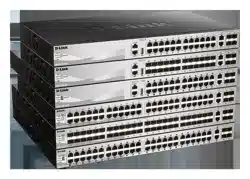Loading ...
Loading ...
Loading ...

DGS-3130 Series Layer 3 Stackable Managed Switch Web UI Reference Guide
338
The fields that can be configured in IPv6 Snooping Policy Settings are described below:
Parameter Description
Policy Name Enter the IPv6 snooping policy name used here. This name can be up to 32
characters long.
Limit Address Count
Enter the address count limit value used here. This value must be between 0
and 1024. Tick the No Limit option to disable this option.
Protocol Select the protocol state here. Options to choose from are Enabled and
Disabled.
• Select DHCP to specify that addresses should be snooped in DHCPv6
packets.
• Select NDP to specify that addresses should be snooped in NDP
packets.
• Select DHCP-PD to specify that the IPv6 prefix should be snooped in
DHCPv6-PD packets.
DHCPv6 snooping sniffs the DHCPv6 packets sent between the DHCPv6 client
and server in the address assigning procedure. When a DHCPv6 client
successfully got a valid IPv6 address, DHCPv6 snooping creates its binding
database. ND Snooping is designed for a stateless auto-configuration assigned
IPv6 address and manually configured IPv6 address. Before assigning an IPv6
address, the host must perform Duplicate Address Detection first. ND snooping
detects DAD messages (DAD Neighbor Solicitation (NS) and DAD Neighbor
Advertisement (NA)) to build its binding database. The NDP packet (NS and
NA) is also used to detect whether a host is still reachable and determine
whether to delete a binding or not.
DHCP-PD snooping performs DHCPv6 snooping of Prefix Delegation (PD) to
setup bindings between the Delegating Router (assigned with an IPv6 prefix)
and the corresponding Requesting Router. The bindings can be used to
validate the source prefix in the packets.
Data Glean
Select to enable or disable the data-glean function here. In some
circumstances (DAD-NS packet lost or Switch reboot), a valid IPv6 address
cannot be found in the binding table for some devices and as a result traffic to
and from these devices are denied by the IPv6 source guard. The data-glean
function provides a method for the Switch to recover the lost IPv6 addresses
using IPv6 Duplicate Address Detection (DAD).
VID List Enter the VLAN ID list used here.
Click the Apply button to accept the changes made.
Click the Edit button to re-configure the specific entry.
Click the Delete button to remove the specified entry.
Loading ...
Loading ...
Loading ...
